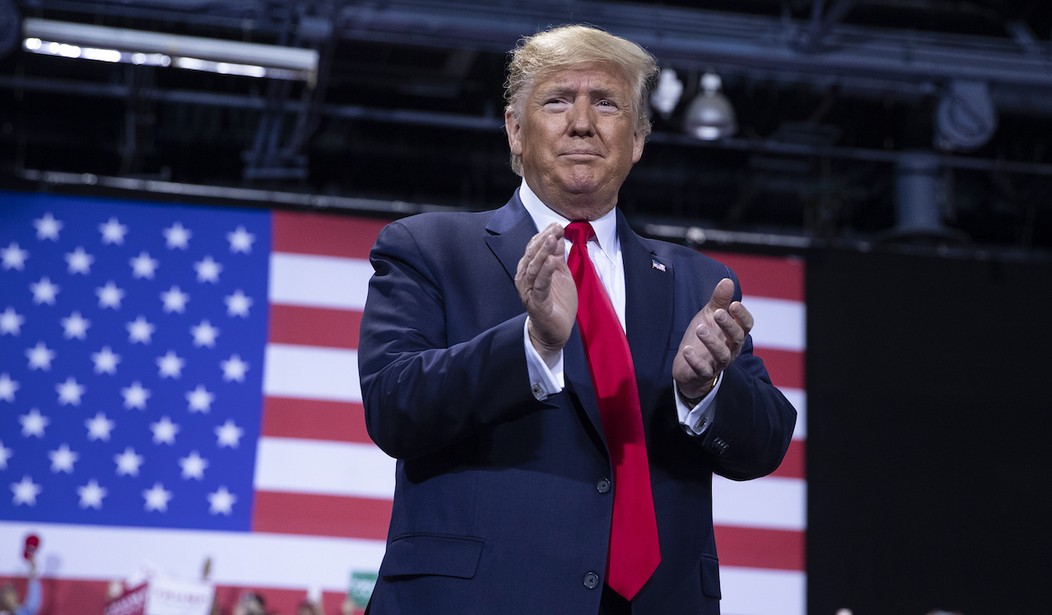Two states, Iowa and New Hampshire, have taken part in the 2020 Democratic nomination process. The Iowa Democratic caucuses were a debacle. The technology didn't work; the results had to be re-tallied; and with the delay, the final results didn't mean as much as they could have to any specific candidate. The process also left the Democratic Party's reputation damaged.
New Hampshire ended with Sen. Bernie Sanders of Vermont (26%) edging out former South Bend Mayor Pete Buttigieg (24%). Sen. Amy Klobuchar of Minnesota outperformed expectations (20%), while Sen. Elizabeth Warren of Massachusetts came in unexpectedly low (9.3%). Former Vice President Joe Biden's campaign limped in at 8.4%, but he was already in South Carolina, having abandoned New Hampshire early and flown Tuesday evening to the Southern state he had declared his firewall.
When my dad, former House Speaker Newt Gingrich, tied for fourth in the 2012 New Hampshire Republican primary, he, the rest of his campaign staff and I stayed in the state and addressed his supporters there before leaving for South Carolina, which he won.
Here's where the Democrats are in their nomination process: Democratic socialist candidate Sanders is the front-runner, barely. Buttigieg is the shiny newcomer, and Klobuchar is attempting to secure the middle. Her closing argument to New Hampshire was captured in a tweet she sent: "We cannot out-divide the divider in chief. We need a candidate who can bring Independents and moderate Republicans with her to build a winning coalition to defeat Donald Trump. I've done it before, I'll do it again. Join us. Let's do this, New Hampshire."
She will continue to attempt to gather the middle as Sanders runs to the left and promises everything free to all voters. Keep in mind that while Sanders is running in the Democratic presidential primary process, he is a self-declared independent, even noting on his official Senate website that he is "the longest serving independent member of Congress in American history."
Recommended
So, what's next? A bit of a lull in the process, with the Nevada caucuses being held next weekend and the South Carolina primary being held on Feb. 29. Just three days later is Super Tuesday, which includes Alabama, American Samoa, Arkansas, California, Colorado, Maine, Massachusetts, Minnesota, North Carolina, Oklahoma, Tennessee, Texas, Utah, Vermont and Virginia. Combined, these states represent 1,344 of the 1,990 pledged delegates needed to win the Democratic nomination. If no candidate receives a majority of the delegates, the second round of voting will include the superdelegates, who are free to vote as they would like.
It has to drive the Democratic National Committee crazy to have an independent leading in its party's primary process. David Siders of Politico reported last month that one DNC member texted to another, "I do believe we should re-open the rules. I hear it from others as well." Just wait until a self-declared independent comes into the convention with the most delegates.
On the Republican side, President Donald Trump has had a great last week and a half. He delivered the State of the Union speech; the economy continues to grow; the Senate did not vote to convict him on the articles of impeachment; and poll results show his approval rating growing among minority groups.
A recent Zogby Analytics poll of likely voters conducted nationwide reported approval ratings of 22% from African Americans, 36% from Hispanics and 38% from Asian Americans. These are incredible numbers and big increases over 2016 figures.
According to an exit poll by Edison Research for the National Election Pool (a consortium of ABC News, the Associated Press, CBS News, CNN, Fox News and NBC News), 8% of African Americans, 28% of Hispanics and 27% of Asian voters voted for Trump.
Well, you might be thinking: "People really don't like Trump. He doesn't have the temperament to be president." But then, when you turn around and see the policy successes that are occurring, you realize that while Trump's temperament might differ from that of his predecessor, he also has a different track record for getting stuff done. Accomplishment, not elegance, is his focus.
In a 2016 exit poll conducted by CNN, 19% of those who said Trump did NOT have the temperament to be president voted for him anyway. Maybe the takeaway is that many Americans were -- and might still be -- tired of temperament being the top prerequisite, and would prefer accomplishments. If so, Trump should have a fabulous autumn.

























Join the conversation as a VIP Member